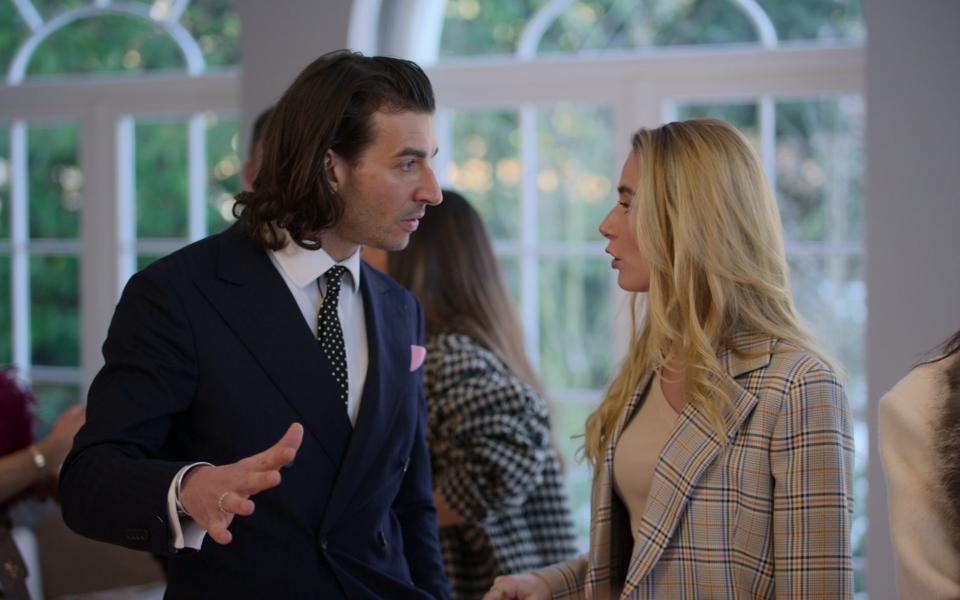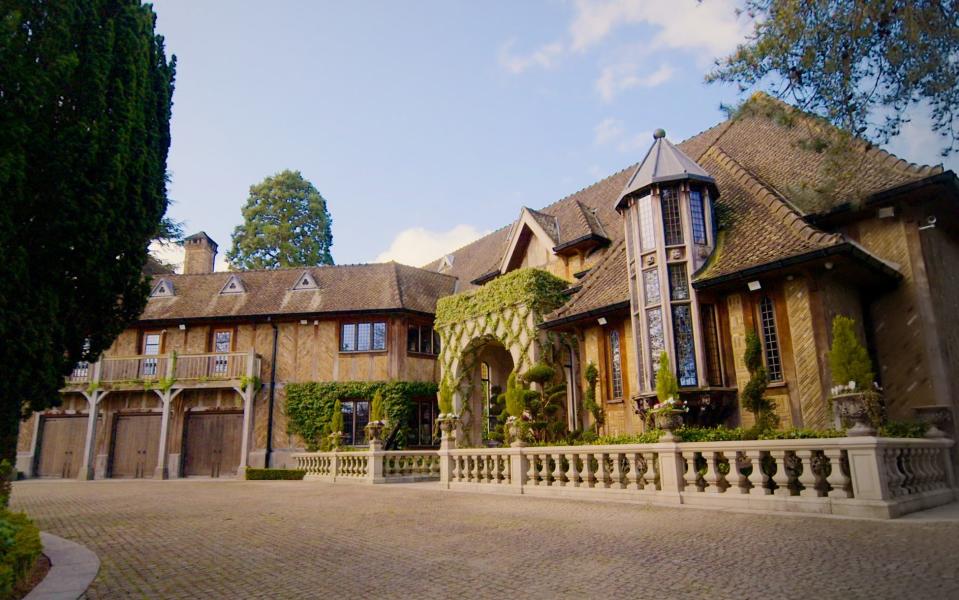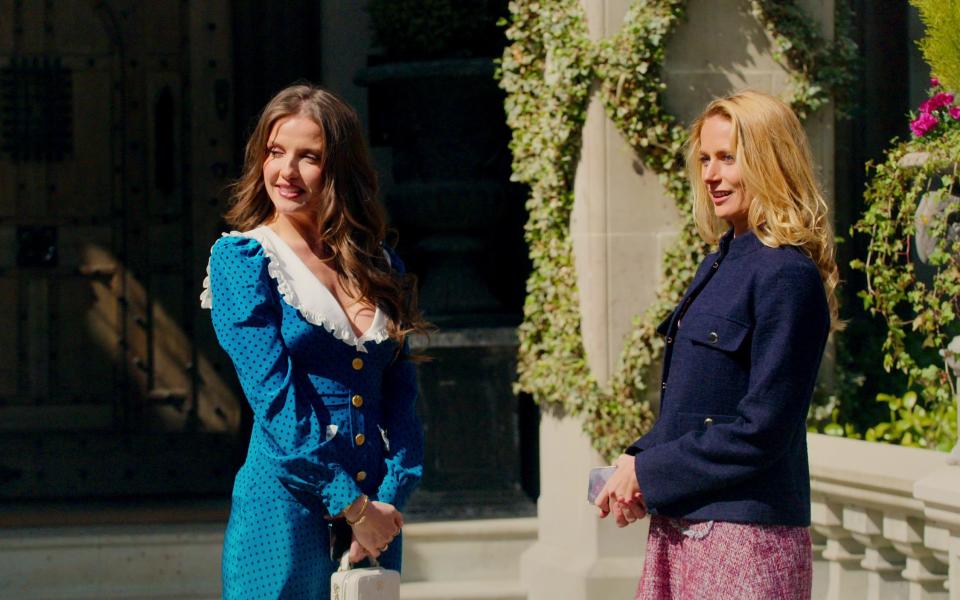
“Probably the most hateable TV show ever made”; “crass and tin-eared”; “artificial, vulgar, post-truth TV” – the reviews are in for Buying London, and they are savage.
Billed as the UK’s answer to Selling Sunset, Netflix’s much-anticipated series instead portrays London’s super-prime property market as awash with in-fighting, inexperience and reality TV rejects hoping for a second chance at fame – and industry insiders are less than impressed.
“The show shows no resemblance whatsoever to what goes on in a high-end super-prime estate agency,” says Charles Lloyd, head of Mayfair sales at Beauchamp Estates (who this week listed Cara Delevingne’s mega-mansion childhood home for £23.5m). How so? “I don’t know where to begin,” Lloyd sighs. “Everything.”
ADVERTISEMENT
Buying London charts the exploits of DDRE Global, an agency set up in 2020 by Daniel Daggers, formerly of Knight Frank. It appears to have just a handful of staff but the drama is impressive: agents are pitted against one another for listings in the multi (multi) millions, cause spats with colleagues’ spouses, and seemingly pop off for sound baths in between viewings.
Lloyd, who knows Daggers, takes issue with its central storyline: two attractive female agents vying to be given a juicy new property, and then falling out (repeatedly) as the series goes on. This “charade” is one of many betraying the realities of how the super-prime world operates, Lloyd says.
“You don’t do that. You can’t have a listing and give it to one person to sell. It’s always a team effort.”
Beauchamp Estates is run by Gary Hersham, who the Sunday Times Rich List last year decreed “wouldn’t get out of bed for less than £50m”. Flashy, certainly, but par for the course on planet super-prime, a term used to denote properties upwards of £10m. (Or, per Lloyd, “it’s probably even £20-plus [million] nowadays.”)
A £113m 26,000sq ft mansion in Regent’s Park and a £55m penthouse in the Centre Point building with a wine tasting room were sold last year, while £3.1bn of sales were racked up in the year to March 2023. Typically purchased by hedge funders, international business tycoons or tech impresarios, the average age of a trophy home buyer is now 41 – down from 53 a decade ago.

That clientele has proven valuable for Daggers, who unironically calls himself “Mr Super Prime” in Buying London (yet somehow remains the most normal person in the cast). He says he has shifted some £5bn of property, £40m of it on Instagram; this is no chump change, given agents’ 1-2pc fee can run to the hundreds of thousands on the most expensive homes.
Daggers insists his highly public sales strategy fuels business. But it has rendered him unstuck in the past; he resigned from Knight Frank in 2019 after allegedly sharing images of a client’s £10m home on Instagram without permission.
Others say this tack is at odds with the discretion this world demands. “Our clients don’t want publicity. They don’t want their properties plastered all over the internet or Instagram or YouTube,” Lloyd says. Partly because this could be disastrous for safety, with potential thieves able to view sellers’ art collections “worth more than the houses”, download floor plans and map out their targets.

Jo Eccles, managing director of prime central London firm Eccord, adds that non-disclosure agreements from clients are the norm. “Because of our track record of discretion, we get recommended to quite a lot of people in the music and media world, because they just don’t want anything about their transactions to come out… You’re certainly not going on TV cameras.”
She adds that agents keeping a low profile is important too, lest they be spotted with potential buyers, and reveal their purchasing plans.
Compare this to Buying London, where agents boast that “the Beckhams are four doors up”; “Simon Cowell – I literally think you can see his house from here”; “Fun little fact: Salma Hayek used to live in this house”. It’s no wonder that the show has raised eyebrows among other agents in the super-prime world.
“If you look at the state of the country at the moment, we’re in a very high interest rate environment, we’ve got a cost of living crisis, and something that is flashy and ostentatious just comes across as vulgar and tone-deaf,” says Lloyd.

Is Daggers’ criticism by his super-prime rivals simply sour grapes? Far from it, says Lloyd, who “understand[s] we were approached by Netflix originally a couple of years ago, and we said no”. Beauchamp (pronounced ‘Beecham’) was recently contacted by a production company creating another UK property series, but they declined, unwilling to put their names to anything beyond their editorial control. Seeing Buying London has reinforced their decision, Lloyd adds.
“It’s not a documentary about the day-to-day life in an estate agency business. It’s a reality TV show that’s been contrived and edited for entertainment.”
Eccles says that’s particularly clear in the many scenes featuring staff chit-chatting in the office. The pressure and technical needs of the job means “that doesn’t happen that often”, she says.
Nor does it show that when it comes to completing deals, “a lot of our best work happens out of hours”. There are late night and early morning calls to fit with buyers’ timezones – or because they happen to have “headspace” at a particular moment.
“You might have a nice dinner planned but have to call it off because a client suddenly has half an hour and they need to speak,” Eccles says. “Or the transaction’s moving quickly, there’s another buyer on the scene, or we need to increase the offer to keep the momentum.”
The hard graft is also absent. Eccord recently managed a purchase for a client in Chelsea for which “we personally spoke to 136 selling agents and brokers”. When sourcing suitable homes for those on their books, they’ll often go through the sales archives to pinpoint the perfect property, and contact the owner on the off-chance they’ll sell – a method Eccles says succeeds 40pc of the time.

Frustrating as the misrepresentation is, she doesn’t plan to welcome the cameras in anytime soon. “We’ve been asked to do these TV shows several times, and we’ve always just declined it, because TV wants drama.”
Daggers does tell his staff to stop fighting, but it appears to fall on deaf ears. “I’ve never encountered those sorts of dynamics,” Lloyd says of his three decades in the business. “It’s like watching Love Island or Big Brother, isn’t it? It makes for good television, but there’s no resemblance to what goes on in a proper estate agency business.”
The show is also no substitute for those hoping for an upper crust version of Selling Sunset: the Hollywood-ified big hair and bigger cars, homes and infinity pools make their UK peers look provincial. Eccles says that the US and British markets are different beasts: “You’re not going to turn up at a viewing and overshadow your clients, that’s just not the done thing in the UK… they don’t want me to be the life and soul. They want me to turn up [and] do my job exceptionally well.”
Daggers appears to lean more towards the American playbook, not least in letting the cameras in in the first place. Might he come to regret it? “I don’t think so,” Lloyd says. “Danny loves publicity.”









